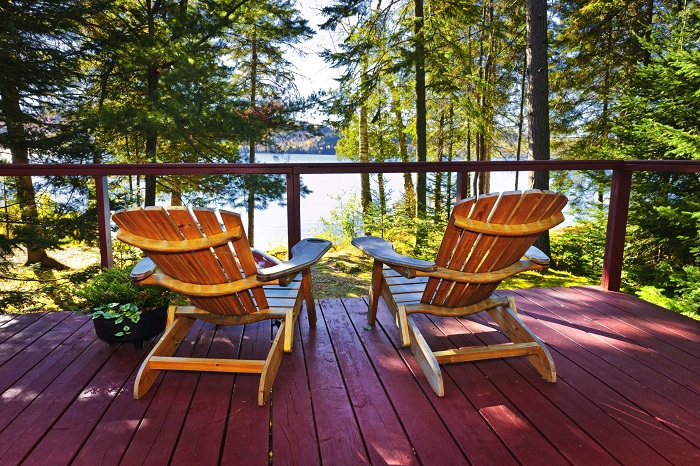A Cottage Romance
Our family owned a cottage for 12 years. Our kids were little and we used it a lot, four seasons a year. Then, as happens, our kids grew up. They started going to camp in summer and had hockey or swimming or other activities in the other seasons. By the end, I was going up by myself to cut the grass in summer and get the snow off the roof in winter. We sold out more than twenty years ago.
Do we miss it? Sure. The sunsets over the lake, the joy of jumping into the cool water, the pure pleasure of canoeing on a windless day. Can’t beat it. But things have changed. We paid less than $100,000 for our place. Now, the same property would likely go for close to $1 million. Would it still make sense to buy? Here is some advice I gave to a client who asked us just this question.
The heart has reasons that reason does not know, according to Pascal, admittedly in a different context. Your family is in an exceedingly fortunate financial position. Why not take some of your savings and use them for a purpose that will make you and your family happy?
From a purely economic point of view this may be one of the worst times ever to buy a cottage. Prices have gone up more than a little as a result of COVID inspired demand, a lack of supply and low interest rates. But economics isn’t everything, and I am a believer in the concept of “psychic” or non-money income; in other words, how much happiness do you get from this expenditure compared to what else you might do with the money? Economists call this the marginal utility of your consumption. Pascal would suggest you consult your heart as well as your head in making this decision.
Here is what my head has to say:
- Make sure, before you buy, that you expect to own the cottage at least ten years. Transaction costs are high, and you don’t know what prices will be like in the future. Counting real estate commissions, land transfer taxes, moving, legal fees and furnishings it would cost you as much as 8% or 9% to get out of this purchase if you change your mind in a couple of years. That’s serious money, probably more than $150,000 after-tax, that gets flushed down the toilet.
- Maintaining a cottage is different than a house. The colder environment stresses the building. You have to worry about freezing pipes, blocked up septic beds and tanks, trees taking down power lines, ice break-up in spring destroying docks and shorelines, insect and rodent problems, not to mention larger animals like beavers, raccoons and bears. Security is an issue, and insurance on seasonal buildings is expensive as a result.
- Property taxes and utilities are higher than you might imagine. Depending on the location you might have to chip in for road maintenance with a cottagers’ association, and if you plan to use it in winter, you will certainly need a snow plowing contract. Contractors and materials are more expensive than in the city.
- With maintenance costs, depending on how much you are prepared to do yourself, how much you use it in winter and shoulder seasons, size and value, you could be spending up to $25,000/yr on yearly expenses.
- Since you already have a principal residence, when you eventually sell the property, any gain will be subject to capital gains taxes.
The really big question is how much you are going to use it and how much you are willing to pay per day. Here is some math.
Imagine that you pay $2 million for a nice cottage. The opportunity cost (that is, foregone investment income on that $2 million) is probably about $110,000/yr pre-tax, say $80,000 post-tax each and every year you own the cottage. Your annual out of pocket as set out above might be $25,000. So the cost to you is about $105,000/yr.
Will you use the cottage 105 days a year? That would be all of July and August and 20 other weekends. If so, the cost would be about $1,000/day. If you use it 50 days a year, it would cost you $2,000/day. If you don’t use all cash but instead take out a mortgage, the cost could be somewhat less due to low interest rates, but the difference is unlikely to be substantial. If I am correct that you are buying at the top of the market, and that you will not make any capital gains for 10 years, you are basically committing about $1 million of after-tax dollars on top of the purchase price to the project over the next decade.
The last question and this is a highly personal one: Are you a cottage family? Do you and your kids enjoy the maintenance and projects? Are you prepared for the schlepping of stuff between home and cottage, between car and cottage? Can you relish the cold of mid-winter, the mud of spring, the bugs of early summer and the grey days of November as much as you love the bright sunny days of July and August? Just as important, how will you feel about all of this in five years and in ten years when your joints are creakier and your muscles tire more easily.
It feels almost un-Canadian to be telling people not to buy a cottage, but as with houses in the current environment, renting is almost certainly the better option. While listening to our heart, keep a hand on our wallet.


